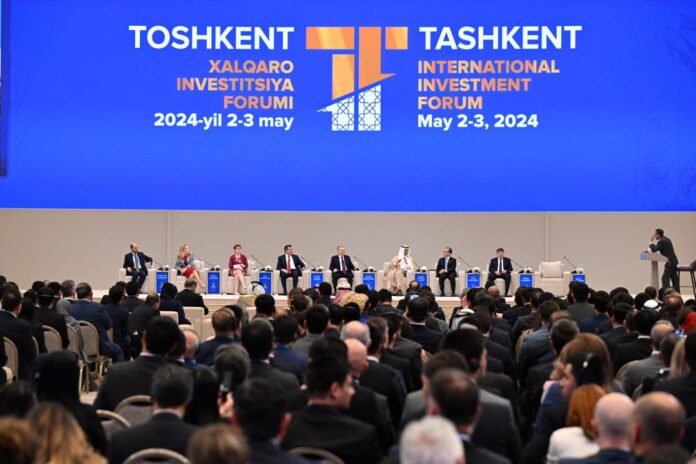TASHKENT, Uzbekistan/Correspondent LP/ – During the ‘Tashkent International Investment Forum’ held on Friday, speakers highlighted Uzbekistan’s potential to emerge as a financial nucleus, paving the way for the Central Asian International Financial Centre.
A financial authority, during a round-table on “Establishing the Central Asia International Financial Center,” posited that Tashkent is well-positioned to evolve into the preeminent financial hub of the region, offering an appealing prospect for investors.
The panel delved into Tashkent’s unique competitive edges for luring global investors, the factors contributing to Uzbekistan’s allure for investments, and the essential conditions that the International Financial Center (IFC) must meet to enhance its appeal. They also reviewed the project’s current progress and the preliminary measures taken towards its fruition.
Andrew Hayes, the roundtable’s moderator, revealed that Uzbekistan is actively developing the IFC in Tashkent, aiming to transform the capital into a formidable regional financial hub and a magnet for international business and investment.
The establishment of the IFC is envisioned as a catalyst for achieving the objectives outlined in the “Uzbekistan-2030” strategy, serving as a mechanism to draw further investments and to adopt exemplary corporate governance, ESG standards, and technological advancements.
Alena Dolgova, Director of the Analytical Bureau of IFC Digital, identified three foundational elements that underpin Tashkent’s role as an international financial center. She emphasized the significance of robust administrative and legal frameworks, the effective application of international law, and the provision of comprehensive access to traditional financial instruments and products for investors. She also pointed out the anticipated strategic emergence of Islamic banking in the region and the competitive vigor of the economy, with IMF projections indicating an annual GDP growth exceeding 5% by 2030, signaling a dynamic development conducive to global investment.
Timur Kurmanbaev, Regional Director of J.P. Morgan, discussed the prerequisites for augmenting investment inflows into the country, echoing the Turkish Prime Minister’s assertion that political stability and policy predictability are essential.
“We aspire for the nation to exert a more pronounced influence on the international capital market, meeting the expectations of business proprietors. The country’s embrace of the global economy, evidenced by IPOs and other ventures, is a welcome development that has been long anticipated,” he stated.
Tek Khoan Ong, Director of Private Equity at Franklin Templeton, underscored the capital market’s critical role in national development.
Karen Srapionov, another participant, observed that despite the recent privatization of several major firms, many have vanished from the local scene. Srapionov expressed optimism that the formation of the International Financial Centre would expedite improvements within the country’s financial sector.






